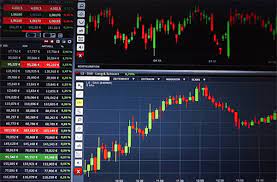In the world of forex trading, knowledge is power. Whether you’re a beginner or an experienced trader, understanding the intricacies of the forex market can significantly impact your success. Forex trading education plays a crucial role in helping traders navigate this complex and dynamic marketplace. By gaining forex trading education of market fundamentals, technical analysis, and risk management strategies, traders can enhance their decision-making abilities and achieve better outcomes.
The Importance of Forex Education
The forex market is one of the most liquid and fast-paced markets globally, where currency pairs are traded 24/7. This constant movement can offer lucrative opportunities, but it can also lead to significant risks if not managed properly. Without a solid foundation in forex trading, it’s easy to fall victim to common pitfalls such as poor risk management, emotional decision-making, and reliance on unreliable sources of information.
Forex education helps bridge this knowledge gap by providing traders with the skills and insights needed to make informed decisions. Through comprehensive learning, traders can better understand how the forex market operates, identify trends, and effectively manage their trades. This education ensures that traders are not just reacting to market movements but are proactively creating strategies based on a well-rounded understanding of the market.
Understanding Market Fundamentals
At the core of successful forex trading lies a solid understanding of market fundamentals. The value of currencies is influenced by various economic, political, and social factors. Key indicators such as interest rates, inflation, GDP growth, and geopolitical events all play a role in shaping currency values. By mastering these fundamental concepts, traders can better predict currency movements and make more strategic trading decisions.
Education in forex also involves learning how to interpret and analyze economic data. With the right knowledge, traders can assess how different events, like central bank announcements or international trade agreements, may impact currency prices. This knowledge provides a significant advantage in identifying potential opportunities before the market reacts, allowing traders to enter or exit trades at the optimal time.
Technical Analysis: A Trader’s Toolkit
Technical analysis is another essential component of forex trading education. This method involves studying historical price movements and using charts and indicators to forecast future market behavior. Learning to read charts, understand candlestick patterns, and use technical indicators like moving averages, RSI (Relative Strength Index), and Fibonacci retracements can help traders identify trends and potential entry and exit points.
A good understanding of technical analysis can transform a trader’s approach, allowing them to make objective, data-driven decisions rather than relying on guesswork or emotional impulses. Forex education provides the tools and techniques needed to master technical analysis, enabling traders to spot trends, recognize price patterns, and improve the accuracy of their market predictions.
Risk Management: Protecting Your Capital
Effective risk management is vital to long-term success in forex trading. One of the most important aspects of forex education is learning how to protect your capital from unexpected market movements. Education teaches traders how to set stop-loss orders, manage position sizes, and diversify their portfolios to minimize risk. Without these crucial risk management strategies, even the most talented traders can experience significant losses.
A comprehensive education in forex also emphasizes the importance of discipline and controlling emotions. Emotional trading, driven by fear or greed, is one of the leading causes of failure in forex trading. With the right education, traders learn to stick to their plans and strategies, minimizing the influence of emotions on their trading decisions.
Continuous Learning and Adaptation
Forex markets are dynamic, and what works today may not work tomorrow. This is why continuous learning is a vital aspect of successful trading. Forex education is not a one-time event but a continuous process. Traders must stay informed about new tools, strategies, and market developments to adapt their approach over time. Engaging with online courses, webinars, books, and forums helps traders stay current and refine their skills.
Conclusion
Mastering the forex market requires more than just intuition or luck; it demands a solid foundation built on education and continuous learning. Forex trading education empowers traders to understand market fundamentals, use technical analysis effectively, and implement sound risk management strategies. By investing time and effort into learning, traders can develop the skills necessary to navigate the complexities of the forex market and improve their chances of success. With the right education, traders are better equipped to make informed decisions, manage risk, and ultimately master the markets.
